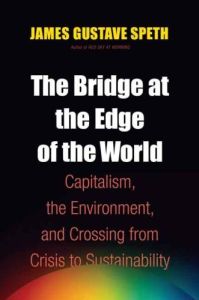Join getAbstract to access the summary!

Join getAbstract to access the summary!
James Gustave Speth
The Bridge at the Edge of the World
Capitalism, the Environment, and Crossing from Crisis to Sustainability
Yale UP, 2008
What's inside?
Will we allow unbridled capitalism and business-as-usual to destroy our grandchildren’s planet?
Recommendation
An Ivy League dean trained as a lawyer, James Gustave Speth lays out evidence to show that life on this planet is being pushed to an end. Marshalling sobering facts, he illustrates how humankind has taxed the Earth’s resources beyond its capacity to regenerate. By creating a culture that worships consumption, capitalism has combined with political self-interest and misguided policies to hasten the environment’s demise. An international community of scientists has provided staggering proof of global warming, yet U.S. political leaders have denied the problem and delayed action. Speth worked to protect the environment within the bureaucracy’s sanctioned processes for years, but he now concludes that the environmental movement launched in the 1970s is a failure. He urges citizens and leaders to readjust their priorities. He also advocates public policies that provide financial incentives for sustainable practices, and says governments should hold corporations accountable for the true environmental costs of their products. getAbstract recommends this book to readers who are interested in economics and social trends, and who want their great-grandchildren to live here – on this planet.
Summary
About the Author
James Gustave Speth is dean of the School of Forestry and Environmental Studies at Yale University, and author of Red Sky at Morning. He was a White House environmental adviser, headed an environmental policy think tank and led an international agency for the U.N.









Comment on this summary